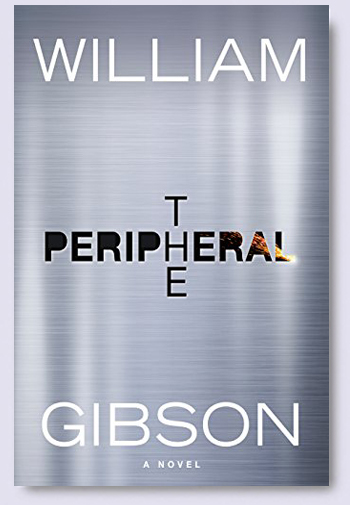
This book — The Peripheral — really requires the reader to dig in. You need to wrap your head around some pretty complex ideas about Time and Technology. William Gibson, whose books have supercharged our thinking (or at least, mine but probably yours, too … you just might not know it) around digital media, cyberspace and interactive media, does not write down to the reader.
What I am saying is that I am almost gave up on The Peripheral — and even had a post about reading frustration playing out in my head at one point — but I am now glad that I didn’t. But, yeah, I was angry at Gibson for the first few chapters because the story immerses you into something that you need to sort of figure out for yourself as you go along. Background knowledge? Not really activated. Gibson does not hand the story to you. Your brain will be firing on all cylinders here, trying to find some anchors to the world he has imagined.
I know I needed a quiet space (not easy in my household) for an extended stretch to allow this story to wash over me, to draw me in, and when that happened, I was hooked, line and sinker. Unfortunately, every time I put it down for a spell, I’d be lost for a bit when I got back into the story. Again … brain working.
I won’t give a full synopsis here, but the story centers on two characters — one from the future (or present) and another from the past (or present) whose time trajectory has been altered by the future (or present). Someone sees something they should not have seen while inside a game (or is it a game?), and someone else now wants that person dead. From this plotline, the story unfolds. Peripherals are live avatars of sorts that people use to interact in spaces in other times … oh heck … you’ll have to read it to understand it.
The upshot: Gibson is in fine form here as a writer whose visions of the possibility of technology create a fictional landscape where things are possible that you never thought were possible. It’s a wild ride in The Peripheral. And if you are lost and disoriented at times, blame Gibson, not me. It’s part of the story, I suspect.
Peace (in the peripheral),
Kevin
PS — here is an excerpt from the book.
Like minds. Just started listening and am also reading on Kindle.
Be curious to know what you think …